
Council of North Carolina March / April 2025
Natural and Synthetic Fields
Insights from the TCNC 2024 Membership Survey A Publication of the


Council of North Carolina March / April 2025
Natural and Synthetic Fields
Insights from the TCNC 2024 Membership Survey A Publication of the
In just seven years, TifTuf®’s installation of over 2 billion square feet has saved more than 48 billion gallons of water. It’s the only Bermudagrass to top National Turfgrass Evaluation Program trials 93% of the time, far ahead of Tahoma at 73%. Recognized for its drought tolerance, TifTuf® is the USDA Specialty Crop Research Initiative’s standard for future university testing and has earned the #1 ranking in the USDA/NTEP ET-Based Water Deficit Research Trial.
TifTuf ®’s water efficiency has garnered numerous awards, including the Smart Approved Water Mark from Australia’s Water Services Association, the Georgia House and Senate’s Extraordinary Water Conservation award, and the

Georgia Association of Water Professionals’ Water Wise Award. It’s also named the Turfgrass of Choice by Southern Living Inspired Communities.
TifTuf® is the most produced proprietary Bermudagrass globally, with more produced in the U.S. than all other varieties combined worldwide. It is the preferred choice for new golf courses, sports fields, and residential and commercial landscapes, and it’s the only Bermuda

sold through Home Depot and Lowe’s by Harmony Outdoor Brands.
While others check boxes, TifTuf® redefines them. Experience the exceptional quality and innovation of TifTuf® turfgrass.

The Turfgrass Council of North Carolina (TCNC) serves its members in the industry through education, promotion and representation. The statements and opinions expressed herein are those of the individual authors and do not necessarily represent the views of the association, its staff, or its board of directors, North Carolina Turfgrass, or its editors. Likewise, the appearance of advertisers, or TCNC members, does not constitute an endorsement of the products or services featured in this, past or subsequent issues of this bimonthly publication. Copyright © 2025 by the Turfgrass Council of North Carolina. North Carolina Turfgrass is published bi-monthly. Subscriptions are complimentary to members of TCNC. Presorted standard postage is paid at Jefferson City, MO. Printed in the U.S.A.
and Submissions: North Carolina Turfgrass allows reprinting of material published here. Permission requests should be directed to
freelance manuscripts and photographs. Contact the managing
and insertions, please contact Leading Edge








we move into spring, I’m excited to reflect on the incredible momentum we’ve already built this year. On January 30th, we hosted the Turfgrass & Technology Conference in Cary, and it was an outstanding way to kick off 2025. The event brought together industry professionals, offering a range of speakers and topics catering to our members' diverse needs. There was something for everyone, from practical sessions on pesticide management to innovative discussions on utilizing CRMs for business success. Thank you to our host, Quality Equipment at the John Deere site in Cary, NC, and to all our partners for making this gathering possible. Your support helps elevate our profession to new heights.
One of the day's highlights was the introduction of our Regional Ambassador Collaboration Channel during the networking session. This new initiative aims to foster communication and idea-sharing among our ambassadors across the state, ensuring we can better serve you. Collaboration is key to advancing our shared goals, and this channel is a significant step toward stronger regional connections and support.
Looking ahead, I’m thrilled to share one of our biggest goals for 2025: hosting an educational event every month. Whether you’re seeking opportunities to learn from industry experts, expand your business, or earn essential continuing education credits, we want to be your one-stop shop for professional growth. These events will cover a variety of topics to meet the needs of all turfgrass professionals, and we’re committed to bringing these opportunities to every corner of the state.
Beyond education, we’re also working hard to expand our advocacy efforts. Turfgrass professionals are vital to our communities, and we’re dedicated to ensuring your voices are heard and your contributions recognized. None of this would be possible without our amazing volunteers, who are leading the charge and dedicating their time and energy to advancing our profession.
If you haven’t already, I encourage you to follow us on Facebook to stay current on all the latest events, resources, and opportunities. We’re here to support you every step of the way.
Best regards,
Wil Sutton President Turfgrass Council of North Carolina


North Carolina Turfgrass is the official publication of the Turfgrass Council of North Carolina
P.O. Box 641 Wake Forest, NC 27588
984.301.5460
www.turfgrasscouncilnc.org
CHIEF STRATEGY OFFICER
Marcy Cottle
info@turfgrasscouncilnc.org 984.301.5460
Published by:
Leading Edge Communications, LLC
206 Bridge Street Franklin, TN 37064 615.790.3718
Fax 615.794.4524
info@leadingedgecommunications.com
PRESIDENT
Wilson Sutton Emerald Golf Club New Bern, NC
VICE PRESIDENT
Greg Harris
Leap Frog Land Care, Inc. Fuquay-Varina, NC
TREASURER
Jonathan Richardson, NCCTP NCCTP Chairman Green Resource Dunn, NC
PAST PRESIDENT
Kevin Herrmann Fairway Green Inc. Raleigh, NC
Brian Beane Southern Turf Winston-Salem, NC
Alpha Jones Fayetteville Woodpeckers Fayetteville, NC
Shaun Kerr
Gates Four Golf and Country Club Fayetteville, NC
Spencer Thomas Keith Hills Country Club Lillington, NC
BuySod
DMG
Revels
Green
Leading






Companies wishing to support TCNC with multiple members can join as Deluxe Members. Deluxe Memberships can be purchased in one of three tiers: 1–5 employees; 6–10 employees; or 11+ employees.
If you'd like to learn more about the Deluxe Membership, please contact the TCNC office at 984.301.5460 or info@turfgrasscouncilnc.org.
Barefoot Lawn Care and Landscaping Services
Canopy Lawn Care
Carol Woods Retirement Community
Carolina Green Corp
City of Asheville Parks and Recreation
City of Raleigh Parks and Recreation
Duplin Sod
Edison Landscaping
Emerald Green
ETM Coastal
Fairway Green of Charlotte
Fairway Green of Raleigh
Fayetteville Tech
Gates Four Golf and Country Club
Green Resource
JRM Inc.
Keith Hiils Golf Club
Leapfrog Landcare
NaturaLawn of America (Raleigh)
Nature's Select
McConnell Golf
Morehead City
Quality Turf
Sod Solutions
Southern Ag
Southern Garden
Southern Seeds, Inc.
The Biltmore Company
The Sunrock Group
Tillery Country Club
Town of Cary Public Works
Town of Garner
Triangle Chemical Company
Turf Mountain Sod, Inc.
UNC – Chapel Hill
Wake Forest University
Weed Man
Renewal as of 4/24/2024
Don't see your company's name? Renew today at www.turfgrasscouncilnc.org
CROP AND SOIL SCIENCES
Dr. Travis Gannon Assistant Professor 919.515.2647 travis_gannon@ncsu.edu
Emily Erickson Crop Science Lecturer 919.513.2034 emily_erickson@ncsu.edu
Dr. Susana Milla-Lewis Professor & University Faculty Scholar 919.280.3443 susana_milla-lewis@ncsu.edu
Dr. Grady Miller Professor & Extension Specialist 919.515.5656 grady_miller@ncsu.edu
Dr. Rob Richardson Associate Professor & Extension Specialist 919.515.5653 rob_richardson@ncsu.edu
Dr. Wei Shi Professor 919.513.4641 wei_shi@ncsu.edu
Dr. Fred Yelverton Professor & Extension Specialist 919.515.5639 fred_yelverton@ncsu.edu
Dr. Qiyu Zhou Assistant Professor 313.782.2892 qzhou9@ncsu.edu
ENTOMOLOGY AND PLANT PATHOLOGY
Dr. Terri Billeisen Extension Associate 919.515.7464 tlhoctor@ncsu.edu
Dr. Rick Brandenburg Extension Leader 919.515.8876 rick_brandenburg@ncsu.edu
Lee Butler NC State Turf Diagnostics Lab 919.513.3878 ebutler@ncsu.edu
Dr. James Kerns Professor and Extension Specialist 919.513.4820 jpkerns@ncsu.edu
HORTICULTURE SCIENCE
Dr. Danesha Seth Carley Director, Southern IPM Center & Associate Professor 919.513.8189 danesha_carley@ncsu.edu
www.turffiles.ncsu.edu/people/



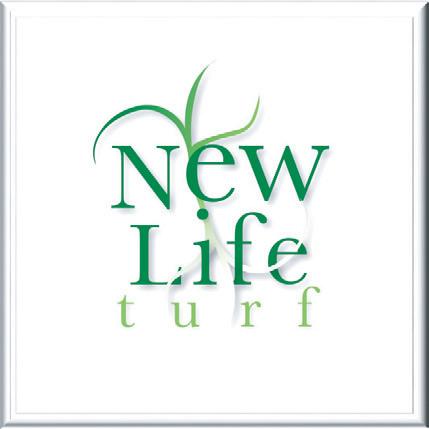




TheNorth Carolina Certified Turfgrass Professional (NCCTP) program is a comprehensive program developed to enhance the technical competency of turfgrass professionals, while elevating their professional image, that of your business and of the turfgrass management industry. Administered by the Turfgrass Council of North Carolina, the NCCTP designation confirms your expertise in turfgrass management to prospective customers and your peers.
The NCCTP program increases and enhances your turfgrass industry knowledge, career, and business development through a course of study of in-depth coverage of the science of turfgrass management.
The NCCTP designation offers immediate confidence and credibility of turfgrass management practices to customers and prospective employers.
Promote and market yourself as a North Carolina Certified Turfgrass Professional.
• Use the NCCTP logo on your business materials.
• Use NCCTP pins, uniform patches, and vehicle decals.
• Your TCNC Member Directory listing is distinguished with the NCCTP designation.
The NC State Turfgrass Professional Short Course, a comprehensive turfgrass education program, is offered at select NC State Extension offices and at NC State University. This Short Course offers a full curriculum of the science of turfgrass management as well as Continuing Education Credits for NCDACS Pesticide and NCLCLB Landscape Contractors' license holders, and it will help you prepare for the NCCTP exam.
This Short Course is recommended but not required to take the NCCTP exam.
Hold a current TCNC membership. If not currently a member, go to www.turfgrasscouncilnc.org and click 'JOIN NOW' to join online or download an application.
Have a minimum of one full year of work experience in the turfgrass industry.
Agree to the Certified Turfgrass Professional Code of Ethics as detailed on the application form.
Submit:
• A current and valid NC Pesticide Applicators license
• A completed NCCTP application (current TCNC members may apply online).
• NCCTP Program Application: $150
• Self-Study Materials: $50
• Exam Fee: $50
Curriculum covers nine core areas: Turfgrass Characteristics; Establishing Turfgrass; Soils & Nutrient Management; Cultural Practices; Pests & Integrated Pest Management; Pesticides & Plant Growth Regulators; Landscape Safety & Pesticide Use; Calculations & Calibration; Turfgrass Business & Economics.
Candidates have six months from the date of their enrollment acceptance to complete the NCCTP exam. Candidates have six hours to complete the exam and must score 80% or more on each section to receive the NCCTP designation.
Exams can be taken at the TCNC office in Raleigh during normal business hours, or arrangements can be made at your local NC State Extension location.
Exams will not be graded if any application information is missing or if TCNC membership status cannot be confirmed. Please allow two to three weeks for exam grading and reports.
Upon successful completion of the exam, candidates will receive communication with their results and either next step options or their graduation packet.
Maintain a current TCNC membership as a means of demonstrating ongoing support for the industry. Submit an annual $50 renewal fee, which supports the NCCTP program and related promotional activities. Designation year is the same as the TCNC membership year, from July 1st to June 30th.
Hold a current NC Pesticide Applicator's License. Subscribe to, actively support and uphold the TCNC Certification Code of Ethics.
The NC Certified Turfgrass Professional designation (NCCTP), the NCCTP logo and related programs materials are the trademarked property of the Turfgrass Council of North Carolina and cannot be used without TCNC's written permission.
For additional information, contact TCNC at 984.301.5460.
Will McCarthy Super Sod Cary, NC
Michael Wilson Super Sod Red Springs, NC
March 21, 2025
2025 Guilford County Regional Turfgrass Conference
March 26, 2025
2025 Johnston/Wake County Regional Turfgrass Conference
April 1, 2025
Greenscaping Pest Management
April 9 – 10, 2025
Morganton Pesticide Safety School
April 23, 2025
Monroe Pesticide Safety School
May 6, 2025
Smithfield Pesticide Safety School









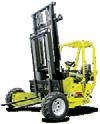



Your gateway to the TCNC community.
Plug into the TCNC network and start building valuable relationships . This package provides the essential tools to connect with key players in the turfgrass industry and stay informed about the latest developments.
Become a foundational supporter of TCNC and en oy increased visibility and networking. In addition to the benefits of the ssential Package , you'll gain greater exposure and have the opportunity to share your expertise with the TCNC community.
Amplify your brand and strengthen your connection with TCNC through prominent exposure and active participation. Building upon the benefits of the oundation Package , you'll en oy wider reach and more opportunities to connect with TCNC members.
Unlock exclusive access & elevate your influence.
The ultimate partnership experience, designed for organi ations seeking maximum impact and collaboration with TCNC. You'll receive all the benefits of the Connection Package , plus unparalleled opportunities to showcase your brand and contribute to the TCNC community.








The 2025 Turfgrass & Technology Conference brought together turfgrass professionals, industry experts, and vendors for a full day of education, networking, and collaboration. Held on January 30, the event kicked off with a Regional Ambassador Collaboration Coffee & Networking session, setting the tone for meaningful connections and industry discussions.
Attendees then gathered for opening remarks before diving into the first workshop, Pesticide Management, presented by Chris Vincent of Aquatrols. Vincent shared essential strategies for pesticide compliance and best practices, equipping attendees with knowledge to navigate evolving regulations.
The learning continued as a panel of industry experts led an engaging discussion on Understanding Soil Health: Technical Insights for the Turfgrass Industry. This session provided an in-depth look at advanced soil management techniques, giving attendees a deeper understanding of optimizing soil conditions for superior turfgrass performance.

In the afternoon, Technical Integration – CRMs for Success, led by Jessie Barrack from Service Autopilot. This session provided actionable insights on customer relationship management tools to streamline business operations and enhance client interactions.
A highlight of the conference was the Vendor Showcase & Business Meeting, where professionals explored innovative products, enjoyed a catered lunch and participated in TCNC’s annual business meeting. This segment allowed for valuable industry connections and the latest updates from TCNC leadership.
The conference ended with closing remarks, reflecting on the day’s key takeaways and a preview of future TCNC initiatives. With a strong turnout and dynamic programming, the 2025 TCNC Conference proved to be an invaluable experience for all who attended.
Stay tuned for more TCNC events and educational opportunities throughout the year!





By Glenn Lucas

SSummer heat, an active hurricane season, fall weather transition, torrential rains… in recent months, Mother Nature has presented us with many challenges we can’t control, but the following paragraphs will discuss things we can control when working to provide the best athletic field surfaces for athletes’ performance and safety.
Maintenance is a major factor in keeping athletic fields safe and playable for athletes and weekend warriors once they step on your fields to compete for championships, trophies, rings… you get the picture. If fields are deemed unsafe and unplayable, it becomes our responsibility as field managers to take all necessary measures, within our control, to ensure their safety. This applies not only to natural turfgrass fields, but also to synthetic (artificial) fields, which are found not only in major cities but also in rural communities.
Maintenance is essential for all types of fields, whether they are natural or synthetic, although the methods differ for each surface. In 1998, when I started in the industry, most of the athletic fields were natural with very few AstroTurf fields. In 2024, there are still more natural fields, but synthetic fields are quickly becoming a reality in cities across the country. So, with all this in mind, I will highlight some thoughts and ideas that can help make your fields better for your athletes and keep the fields safe and playable. These suggestions are not an all-inclusive list for maintenance, but some of these are the most often neglected in field maintenance practices.
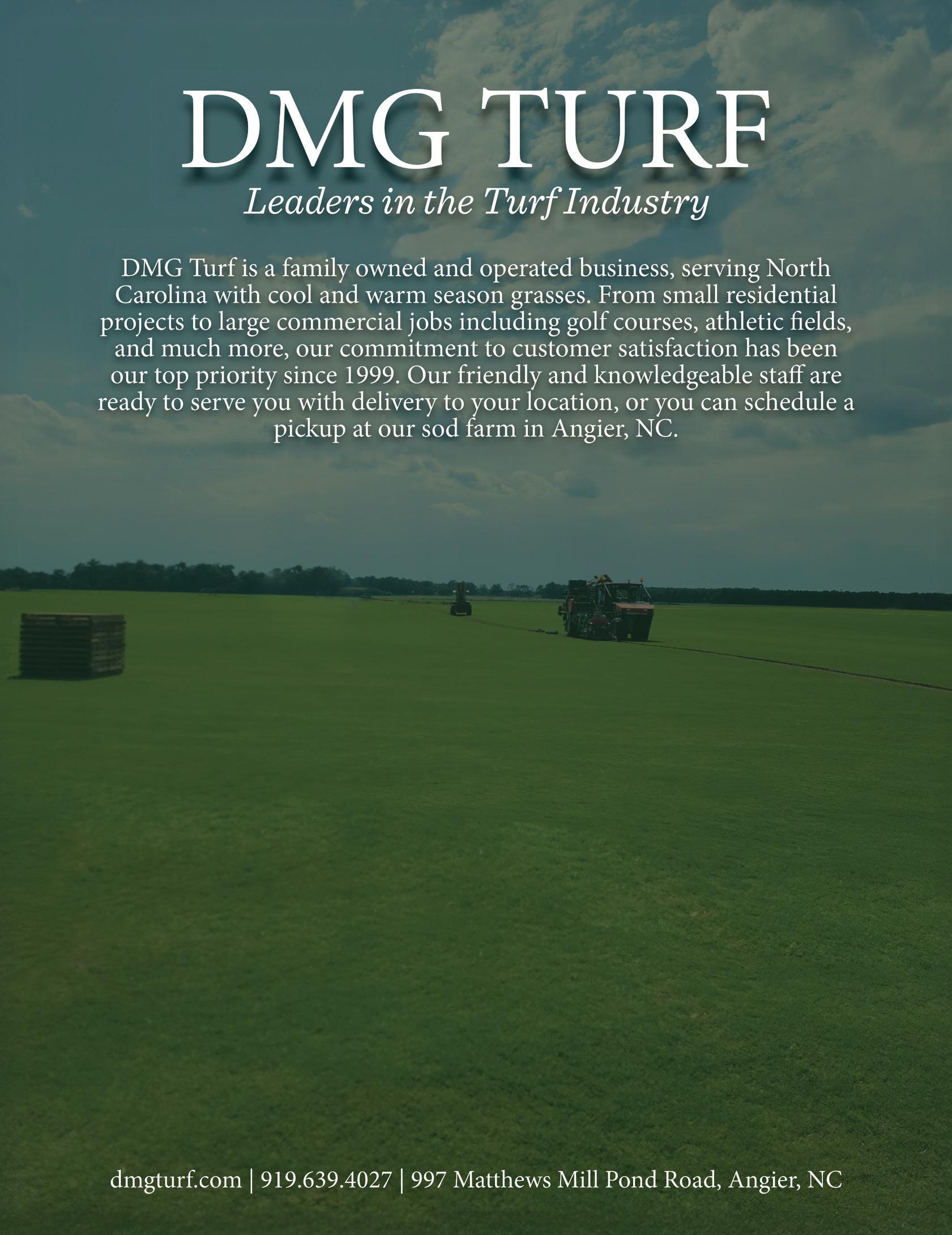
1. Soil Sample. A soil sample for sports fields is analogous to a person having a physical every year. By pulling cores and getting soil samples, you can discover what is happening on the field, as well as direct the fertility program for the upcoming season. Soil sampling allows you, at very little cost, to plan for the growing season and fertility calendar for your fields, as well as help you budget for the year. Recommendations are to have your soil tested in, or around, the same time each year. This enables an accurate analysis of the soil and prevents results being skewed with a recent application of lime or fertilizer. Samples can be tested at multiple independent laboratories across the USA, or you can send them to your local extension agent, and they can get the results. You can find state by state testing sites @ https://www.justpuregardening.com/state-by-state-list-ofsoil-testing-laboratories/
2. Preemergent Herbicides are a form of chemical weed control which prevents germinated weed seedlings from becoming established. Why is this important? It allows your preferred turfgrass (typically Bermuda on sports fields) to thrive and flourish without any competition from weeds, or non-desirable plants. The question is often asked, “Can I apply a preemergent herbicide if my field is overseeded every year with Ryegrass?” Yes! You can use a preemergent, but read the label prior to applying and identify the window that is needed from time of application to the time of your overseed. For example, Dimension is one of several preemergent herbicides that has a window of 6–8 weeks before overseeding. If you miss the window and overseed too early, it can hinder your ryegrass from becoming established in the fall. As with any herbicide, pre or post, always read the label and follow the instructions exactly.





3. Aerification and Topdressing. These two cultural practices are some of the most overlooked and least utilized when managing sports fields. Waldo Terrell, former SEC turfgrass director, mentioned this in a turfgrass conference. “If you think you have aerified your field enough during the summer, then do it one more time.” Aerification can help the turfgrass reduce thatch buildup, reduce compaction, allow nutrients, water, and oxygen to get to the root system, and overall make your turf healthier. There are several methods to the process of aerifying: solid tines, core or hollow tines (deep or shallow), bayonet tines, needle tines, talon tines, etc. Whichever method you choose, the suggestion is at least once during the growing season, you need to core aerate and top-dress with a clean washed sand, USGA is preferred. Topdressing your field after core aerating will allow the sand to move into the pore spaces created and allow for the water and nutrients to get to the roots with less resistance.
Along with aerification and topdressing, the process of Fraze mowing has gained momentum as a method of maintaining turfgrass. According to Advanced Turf Solutions website, Fraze mowing is a field renovation technique that removes thatch and organic matter build-up and leaves the strongest grass to regenerate. The process of Fraze mowing is the removal of the top layer of turfgrass which encompasses any weed seeds present in the thatch layer. It also helps shave down any high spots in the field creating a more level playing surface.
4. Mowing. Creating a dense healthy turf is the best herbicide that money can buy and mowing on a regular basis is the key to achieving healthy turf. Ideally you want to use a reel mower (Toro, John Deere, Jacobsen) that allows the turf to be mowed or cut between a bed knife and reel, scissor approach to cutting the blade of grass. A general rule of

thumb is you do not want to remove more than 1/3 of the blade of grass each time you mow. Therefore, you will need to mow your field 3–5 times per week, depending on how much the grass is growing.
a. There are chemicals that can be used to help slow the growth of grass (plant growth regulators or PGRs.) They limit the vertical growth of the plant. If you decide to use PGR’s, be sure to follow the label and apply every 28 days during peak growing season.
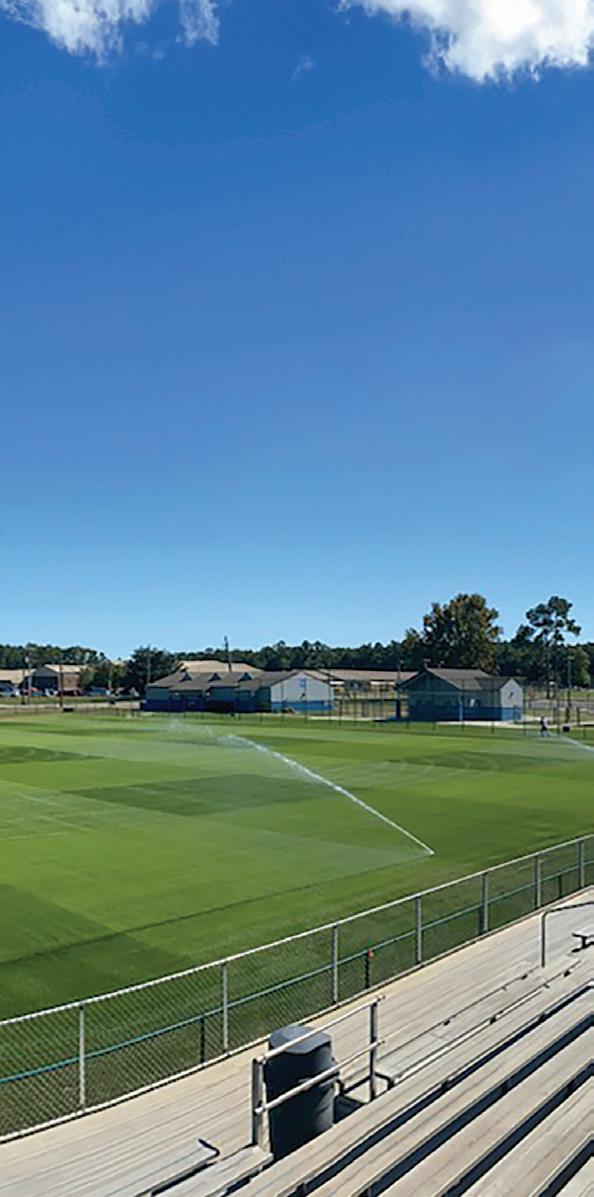


b. As technology increases, the industry is seeing the influence of autonomous mowers, like the robotic vacuums that are used in many homes. The use of autonomous mowers allows you to save time. In the industry, some groundskeepers are using the mower during the offseason to minimize the footprint from the reel mower. Now, don’t get me wrong, there is absolutely nothing like mowing a field and seeing the results of your work, but if you can save time and allow the robotic mower to cut the grass, it allows you to spend time elsewhere on, or around, your field, etc.
5. Fertility. Fuel is important to all living things, whether it be people, animals, flowers, plants, or turfgrass. Fertilizer is the fuel for your turfgrass. When choosing a fertilizer, you need to identify one thing: How long do you want the fertilizer to last? Once you determine the timeframe, you can then decide which fertilizer should be applied to your field. If you want a quick spurt of growth, you can use a 13-13-13, 21-0-0, etc., without any slow-release components in the bag. This will give you quick green up and growth, yet it only is available to the plant for 2-4 weeks. If you want your fertilizer to last 8-10 weeks, then a 24-2-11 with 50% polymer coated urea will be needed. We have all heard that time is money, so, with the fertilizer you choose, you will
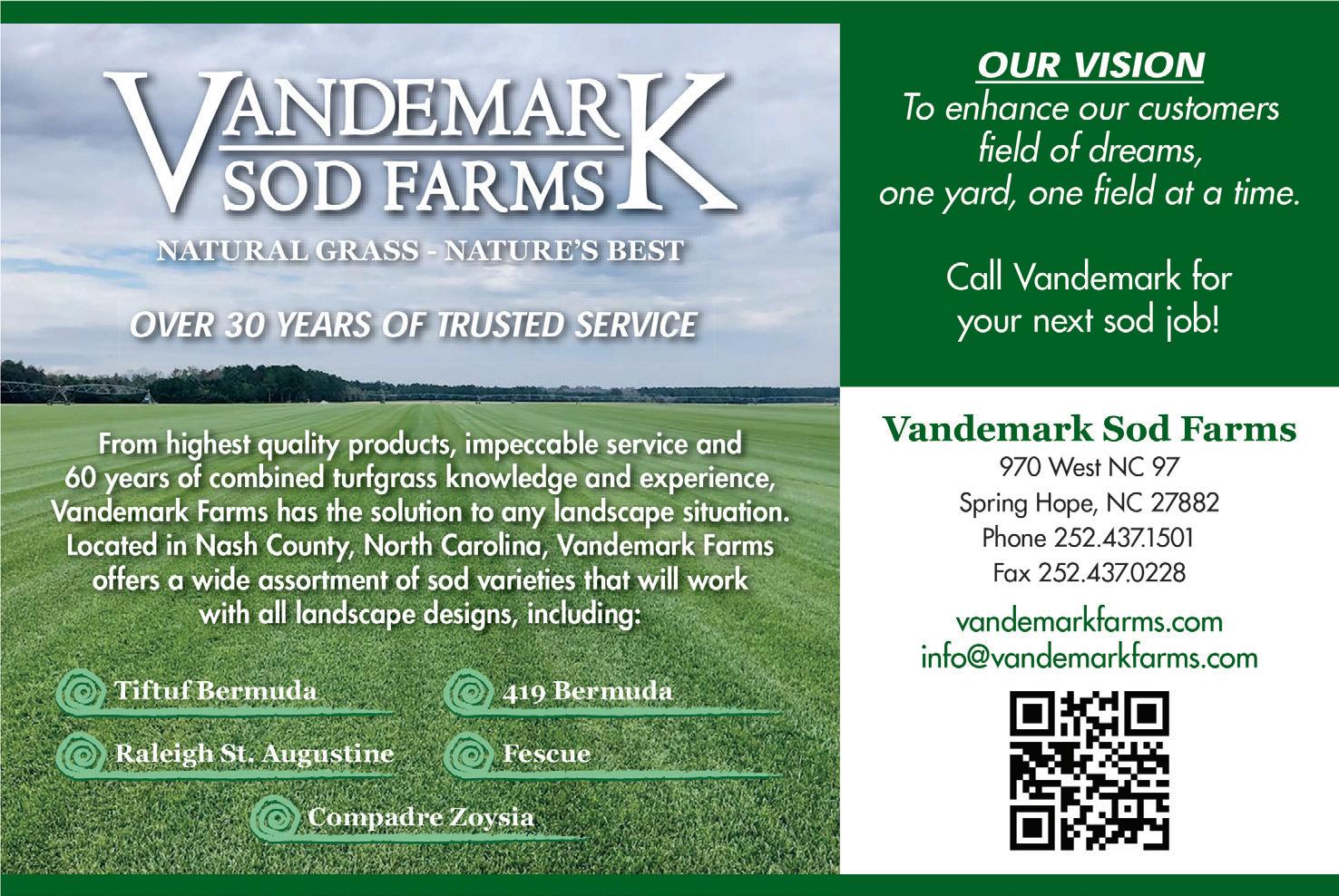
pay for time in the cost per bag. Example, a bag of Triple 13 that lasts 2-4 weeks will cost less than a 24-2-11 that lasts 8-10 weeks. If you take the cost per bag and the cost of your time to apply the fertilizer, it will help you decide which is best for your field and budget in consideration to how long you want it to last. With any plant, a nice consistent feed during the growing season is ideal to provide dense healthy turf.
As mentioned earlier, synthetic fields are an ever-growing reality in the world of athletics and these fields are not maintenance free. They require maintenance and if not maintained properly, then they become unsafe and not very playable for the athletes. I have been involved in local municipalities that have installed synthetic fields ranging from entire fields to just the infield surfaces. I stressed to the board of alderman that yes, you can install synthetic fields, but are you as a city willing to invest to keep them safe for years to come? You don’t have to water, mow, fertilize, etc., on synthetic fields, but you do have to broom or brush them, as well as add infill material (crumb rubber, sand, etc.) Additionally, worn turf around Homeplate and the sliding areas around the bases or in front of the pitching rubber must be replaced. If you have a natural outfield and synthetic infield, the transition will have to be edged and maintained to allow for a smooth ball roll from one surface to the other.
As with anything in life, maintenance is the key to keeping fields, houses, cars, etc. in good or great condition. Being a turfgrass (field) manager, we should always keep safety and playability at the forefront of our minds. Making it a priority through daily, weekly, monthly and yearly maintenance practices, we can assure the fields to be ready for any athlete.





Triple Threat Tall Fescue has an unbeatable resistance to Brown Patch and Gray Leaf Spot. The deep rooting ability gives it greater resilience under reduced irrigation during periods of drought. Triple Threat delivers a beautiful healthy turfgrass solution. Dark Attractive


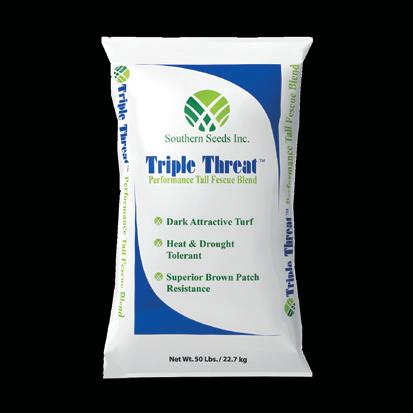
PRODUCT FEATURES
Heat Tolerant
Drought Tolerant Superior Brown Patch Resistance
Gray Leaf Spot Resistance




Last edition we introduced three of the new Regional Ambassadors, and we’re excited to introduce you to three more dedicated professionals that will bring local expertise, industry knowledge, and a shared commitment to advancing our mission. Representing diverse regions across the state, the regional ambassadors are the local voices of TCNC, building connections, sharing resources, and supporting members in meaningful ways. In this spotlight, we’ll introduce you to some of these standout leaders who are making a difference in their regions and beyond.
Mike is the Director of Agronomy and Franchise Support at Canopy Lawn Care. They are based in Raleigh and believe in a soil-first approach.
“I want to give back to an organization that has supported my professional growth for 15 years. This is the least I can do! I look forward to the opportunity to mentor and be a resource to industry professionals.”
William owns Got Grass Turf Management in Pinehurst. They do turf treatments, aeration, topdressing, and irrigation repairs. They also take care of athletic fields.
“I wanted to help get the word out about TCNC. I feel a lot of people don't know about it and what they have to offer. I look forward to growing membership for TCNC and getting to meet new people in the industry.”
Joshua is the Golf Course Superintendent of Lane Tree Golf Club in Goldsboro.
“I decided to become a regional ambassador to give back to the organization and to help grow our presence in NC with turf professionals. I would love to see the organization become a go-to for people who are looking for turf professionals in their area. I am looking forward to meeting new people in the turf industry and trying to help them in any way possible.”
linkedin.com/company/theturfzone

x.com/theturfzone
By Kristina Kelly
When it comes to turf management, your success isn’t just about maintaining pristine lawns, sports fields, or commercial grounds; it’s about assembling a winning team strategy to build and maintain strong, enduring relationships with your clients, much like crafting the perfect playbook for victory. Whether your turf services cater to homeowners, schools, sports facilities, or large commercial properties, your ability to foster trust and satisfaction can determine your long-term business success. Here are key strategies for cultivating relationships that score big with your clients.
The foundation of any strong relationship is understanding what your client wants. For turf managers, that often means delivering safe, visually appealing landscapes and ready to perform under demanding conditions. Start by having in-depth conversations with your clients to learn:
• Usage Patterns: How is the turf used? Is it a sports field that needs durability, a commercial property that requires a year-round appeal, or a residential lawn that is used for aesthetic value?
• Key Events or Deadlines: Are there upcoming games, outdoor events, or seasonal needs where the turf must shine?
• Pain Points: Have they had issues with drainage, wear and tear, or maintaining a specific appearance?
• Budget Constraints: What financial limitations exist, and how can you work within them to deliver optimal results?
Addressing these needs proactively sets the stage for a relationship based on trust and understanding, much like a coach studying each player’s strengths to build a winning strategy.

Communication is vital in any relationship. For turf managers, clear and consistent communication ensures their clients know what to expect and helps prevent misunderstandings.
1. Set Expectations Early: Outline your services, timelines, and deliverables in a written agreement or proposal. Be specific about maintenance schedules, turnaround times for repairs, and costs.
2. Provide Regular Updates: Use photos, reports, or quick emails to inform clients of your progress. Highlight improvements, share before-and-after comparisons, and alert them to any issues requiring extra attention.
3. Be Transparent About Challenges: If unexpected problems arise—such as equipment failures or uncooperative weather—inform your clients immediately. Offer solutions and be proactive in minimizing disruptions.
Effective communication fosters trust, demonstrates professionalism, and assures clients that their needs are your priority—just like a quarterback calling plays to keep the entire team on the same page and driving toward success.
Southern Agricultural Insecticides, Inc. is a distributor of pesticides, fertilizers, potting soils, and horticultural supplies with locations in Florida and North Carolina.
MANUFACTURERS OF… DISTRIBUTORS FOR…
Blue Colorant
Chelated 5% Iron
Chlorpyrifos 2.5% G
Chlorpyrifos Mole
Mole Cricket Bait
Defoamer
Latron B–1956
Methylated Seed Oil
Snail Bait
Soil Acidifier
Soil Wetting Agent

Soluble 10–30–20
Soluble 30–7–14
Soluble 20–20–20
Spreader Sticker
Surfactant for Herbicides
Tank Cleaner
Turf Green
Tweak
12–0–0–6% iron
GOLF COURSE SALES STAFF
Jim Wells — West Central Florida (941) 720–2712
Roger Welker — East Coast Florida (772) 260–0282
Kevin Downing — South Florida (561) 427–4501
Jeff Strother — Southwest Florida (941) 270–0470
Andrew Wampler — Western Carolinas (828) 674–2594
Brandon Hicks — Central North Carolina (336) 906–0803
Nathan Biggs — North Carolina...................... (704) 996–5125
AMVAC Andersons
Aquatrols
BASF
Bayer
BioSafe Systems Bioworks
Certis
Corteva Agriscience
Envu
FMC
Gowan
LebanonTurf
Milliken
Milorganite Nufarm OHP
Old Castle PBI / Gordon
Quali-Pro
Rightline
SePRO
Sipcam Agro
Solo
Sunniland
Syngenta UPL Yara
Boone, NC (828) 264-8843
Hendersonville, NC (828) 692-2233
Palmetto, FL (941) 722-3285
Your work’s quality will always speak louder than words. Clients want to see results, and delivering consistent, high-quality turf management services is the best way to build lasting relationships. To ensure your work always stands out:
• Invest in Training and Technology: Stay up to date on the latest turf management techniques and invest in cutting-edge equipment to maintain a competitive edge. You can do this through our monthly educational webinars or obtaining your NCCTP Certification. Go to turfgrasscouncilnc.org/certification-page to learn more.
• Monitor Conditions Regularly: Routine inspections can help you spot and address issues before they escalate.
• Tailor Services to Specific Needs: Whether maintaining a high-traffic sports field, a visually stunning residential lawn, or a durable commercial property, understanding these nuances will impress your clients and ensure their satisfaction.
When you consistently exceed expectations, you’re more likely to secure repeat business and glowing referrals—just like a team that always brings home the championship trophy by delivering top-tier performance.
Your crew’s professionalism and skills reflect directly on your business. Hiring, training, and retaining a team that aligns with your company’s values is crucial to maintaining strong client relationships.
• Train for Excellence: Ensure your team understands proper turf care techniques, equipment operation, and the importance of client satisfaction.
• Promote Professionalism: From wearing professional uniforms to maintaining a polite demeanor, your team’s behavior on-site can make or break your reputation.
• Encourage Accountability: Empower your employees to take ownership of their work and address client concerns proactively.
A well-trained, reliable team strengthens your ability to deliver exceptional service and builds confidence among your clients.
To truly stand out, look for ways to offer added value that demonstrates your commitment to your clients’ success. Here are a few ideas:
1. Performance Analytics: Provide data on soil conditions, irrigation efficiency, or turf health to help clients understand the impact of your work.
2. Education and Guidance: Offer tips for preserving turf quality between maintenance visits, such as how to manage foot traffic or adjust irrigation during extreme weather.
3. Emergency Support: Be available for urgent repairs or consultations, especially before high-profile events or inspections. Knowing they can rely on you in a pinch builds trust and loyalty.
Think of your client relationships as partnerships, not transactions. Show them that you’re invested in their success as much as your own. Simple gestures can go a long way:
• Celebrate Milestones: Acknowledge anniversaries, championships, or special events with a note or small gift.
• Solicit Feedback: Regularly ask for input on your services and be open to making adjustments.
• Stay Connected: Even during slow seasons, maintain communication through newsletters, check-ins, or sharing industry insights.

In turf management, your ability to build long-term client relationships is just as critical as your turf expertise. By understanding your clients’ needs, maintaining open communication, delivering consistent quality, and going above and beyond expectations, you can create partnerships that are both professionally rewarding and personally fulfilling. When your clients view you as an indispensable part of their team, you’ll not only retain their business but also establish a reputation that attracts new opportunities. And that’s a win worth celebrating.

By Kristina Kelly
Turfgrass Council of North Carolina (TCNC) recently conducted its 2024 Membership Survey, gathering valuable insights from members and non-members about their needs, priorities, and preferences. The survey’s findings offer a roadmap to serve North Carolina’s diverse turfgrass professionals better.
The survey saw 85% participation from current members and 10% from non-members. Respondents hailed from various sectors, including lawn care operations, golf course and sports turf management, facilities management, and landscaping. This diversity underscores TCNC’s role as a unifying body for professionals across the turfgrass industry.
Members identified educational opportunities and professional development as their most valued services. Educational workshops and webinars ranked highest, with 30 participants selecting them as a priority, followed closely by certification programs and discounts on North Carolina State University events. Networking opportunities and advocacy efforts were also key interests.
The survey highlighted continuing education as the top-ranked benefit, with 16% respondents selecting it as their most important priority. Access to industry research and networking opportunities also emerged as significant contributors to professional growth. These results emphasize TCNC’s role in fostering a well-informed, connected professional community.
Operations and marketing were the most sought-after business education topics, while turfgrass management techniques led the technical education category, with 34% respondents
selecting it as a priority. Pest and disease management, soil science, and sustainable practices featured prominently, indicating a need for comprehensive, practical learning.
The survey revealed a preference for hands-on workshops and field demonstrations, especially for technical topics. Online self-paced courses and webinars were also popular, reflecting a growing demand for flexible, accessible learning options. This is a format TCNC is actively pursuing with plans to roll out in 2025.
Based on these findings, TCNC has identified three key priorities:
1. Expanding Practical Education
Members expressed strong interest in the NC Certified Turfgrass Professional (NCCTP) program and continuing education.
2. Increasing Awareness of Membership Benefits
Some respondents were unaware of all the benefits membership brings, suggesting a need for improved communication. Targeted marketing campaigns, introductory webinars, and informational materials will help bridge this gap and build our membership.
3. Enhancing Networking Opportunities
Networking was a consistent priority, particularly for golf course management, landscaping, and sports turf management professionals. TCNC plans to offer virtual and inperson tailored events that address sector-specific challenges and encourage meaningful connections.
The 2024 Membership Survey reinforces TCNC’s commitment to supporting North Carolina’s turfgrass professionals. By aligning initiatives with member needs and preferences, TCNC is well-positioned to provide the tools, resources, and community its members need to thrive.








